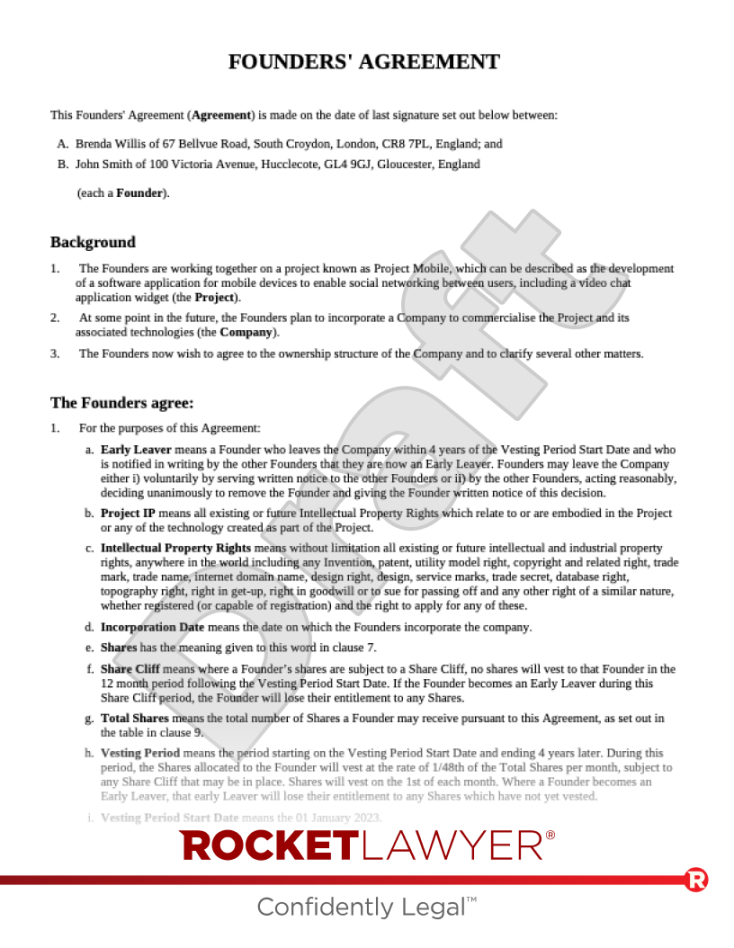A Founders’ Shareholder Agreement (FSA) is a crucial legal document that outlines the rights, responsibilities, and ownership stakes of each founder in a startup company. This agreement serves as a foundational pillar for the company’s future, establishing a clear framework for decision-making, equity distribution, dispute resolution, and exit strategies.
Key Elements of a Founders’ Shareholder Agreement
A well-drafted FSA should encompass the following key elements:

Image Source: rocketlawyer.com
1. Parties to the Agreement
Clearly identify all founders involved in the company.
2. Company Formation
![Great Founders Agreement Tramples [For ANY Startup] ᐅ Great Founders Agreement Tramples [For ANY Startup] ᐅ](https://theroyalmen.com/wp-content/uploads/2024/11/great-founders-agreement-tramples-for-any-startup.jpg)
Image Source: templatelab.com
Detail the company’s legal structure (e.g., corporation, LLC).
3. Ownership and Equity
Clearly define the initial ownership percentage of each founder.
4. Intellectual Property
Outline the ownership of intellectual property rights, including patents, trademarks, and copyrights.
5. Voting Rights
Determine the voting rights associated with each share class.
6. Management and Control
Define the roles and responsibilities of each founder.
7. Compensation and Benefits
Outline the compensation and benefits package for each founder.
8. Dispute Resolution
Establish a preferred method for resolving disputes, such as mediation or arbitration.
9. Exit Strategy
Outline the procedures for selling the company or its assets.
10. Confidentiality and Non-Compete
Implement confidentiality obligations to protect sensitive company information.
Design Considerations for a Professional FSA
A well-designed FSA not only protects the legal interests of the founders but also fosters a collaborative and harmonious working environment. Here are some design considerations to enhance the professionalism and clarity of your FSA:
Clear and Concise Language: Use plain language and avoid legal jargon to ensure easy understanding.
Conclusion
A well-crafted Founders’ Shareholder Agreement is a cornerstone of any successful startup. By carefully considering the key elements and design principles outlined above, founders can create a legally sound and business-friendly agreement that sets the stage for long-term growth and success.